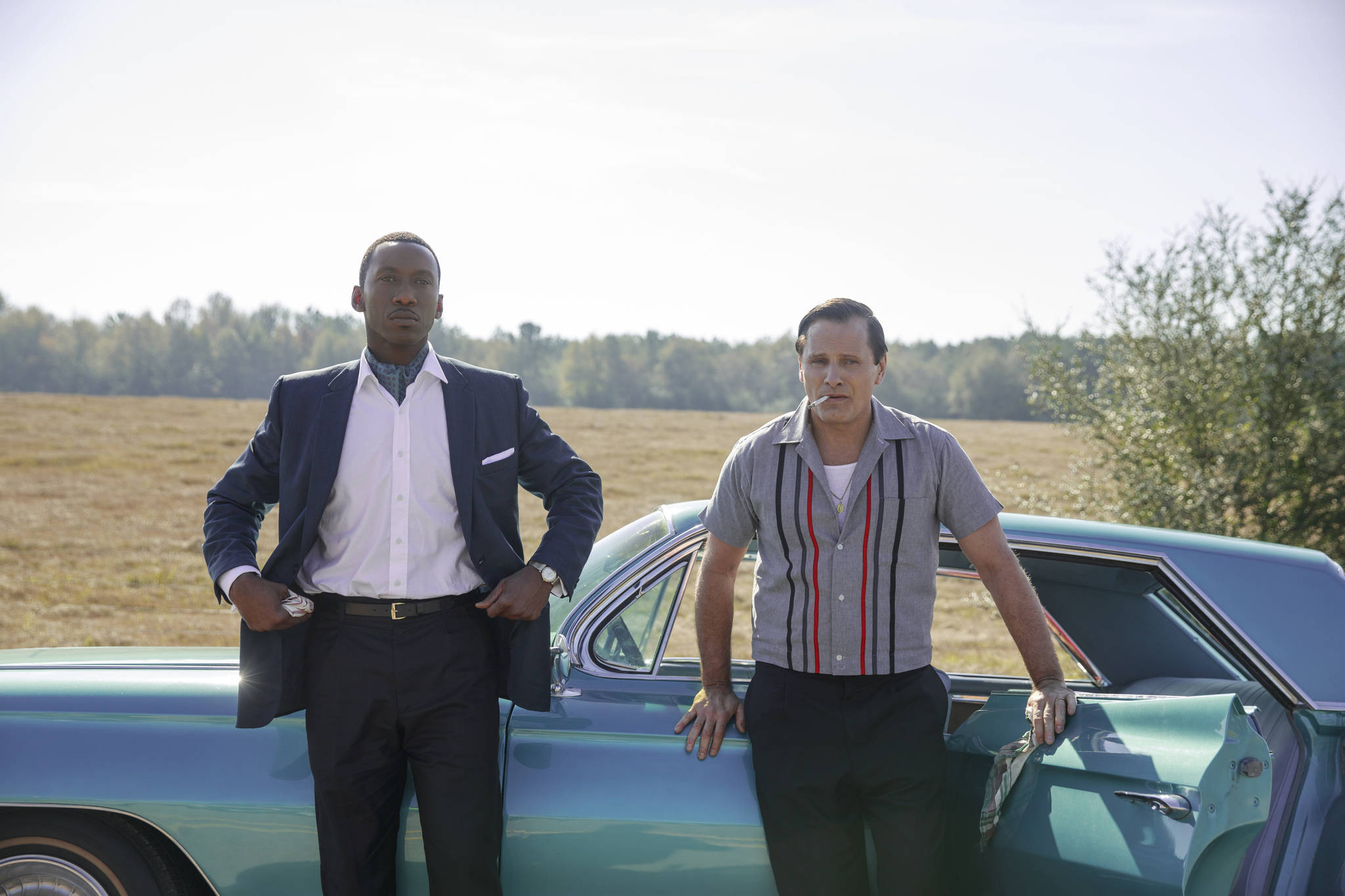You know an actor’s in the groove when a simple grunt conveys not only an entire character arc, but a movie’s essential meaning. Such a moment comes late in Green Book, and it’s one of a thousand things to savor about the performances in this film.
The groan emerges from the beefed-up body of Viggo Mortensen, playing a Bronx wiseguy named Tony Vallelonga (aka Tony Lip). It’s 1962, and Tony has been hired by a black jazz pianist, Dr. Don Shirley (Mahershala Ali), to act as chauffeur during a concert tour. But Tony’s duties are not merely to drive a car; as a nightclub bouncer and a guy who knows his way around a brawl, it’s understood that Tony may have to provide protection for Shirley when the trip ventures into the American South.
After having already experienced the humiliations of staying in segregated motels and being asked to use the outhouse at the home of an affluent white family where he is the guest of honor, Shirley tries to enter the restaurant at a Birmingham hotel. Tony, seated at a table, sees the maitre d’ holding up a hand, and it’s clear Shirley is going to be asked to eat elsewhere. That’s when Tony gives forth with his groan. It’s partly the effort of wrenching his bulk from the table and getting to his feet, but the sound also carries the exasperation at injustice and the disbelief at human bigotry. Good acting isn’t just about showboating speeches, about also about tiny vocal inflections and precise body language. Mortensen’s got it nailed.
Beyond its acting, Green Book is a film of good intentions and well-aged cheese. The cringeworthy opening is worrisome: Our introduction to Tony’s Italian-American community is played with the delicacy of a high-school production of Goodfellas. When Tony meets Dr. Shirley—an erudite fussbudget who keeps an apartment above Carnegie Hall—the movie finds firmer footing. Director Peter Farrelly (yes, of the Dumb and Dumber Farrelly brothers) has fashioned Green Book—whose title refers to The Negro Motorist Green Book, the mid-century publication that helped black tourists find safe places to travel in the United States—primarily as a buddy comedy, despite the racial subject. Tony Lip is a racist who needs to learn about black people; Don Shirley is an effete egotist who needs to loosen up and enjoy life more. It will not surprise you that the two men learn lessons from each other and become friends in the process.
What might surprise you is how skillfully entertaining this process is, even when the film flirts with seriously bad taste. When Tony teaches Shirley how to enjoy fried chicken, many alarm bells of racial stereotyping go off—but the sequence shrewdly sets up a parallel scene in which the same stereotyping gets cruelly shoved in Shirley’s face. I don’t know whether that incident happened, but Green Book is based on a true story (script by Farrelly, Brian Hayes Currie, and Nick Vallelonga, Tony’s son), and the real Vallelonga and Shirley remained friends until they died in 2013.
However much I rolled my eyes at its cornball touches, I have to admit that the film generates a great deal of goodwill, due to its smart pace, bright colors (cinematographer Sean Porter is a Puget Sound native), and the Mortensen/Ali double act. Ali won an Oscar for his electric performance in Moonlight, and he’s equally good here, although in a different, reserved way. Mortensen is 40 pounds heavier and a million times more exuberant than usual, a crass motormouth with a firm sense of justice. These characters are thin, but the actors fill in the outlines with masterly craft.
Green Book
Now Playing | Rated PG-13






